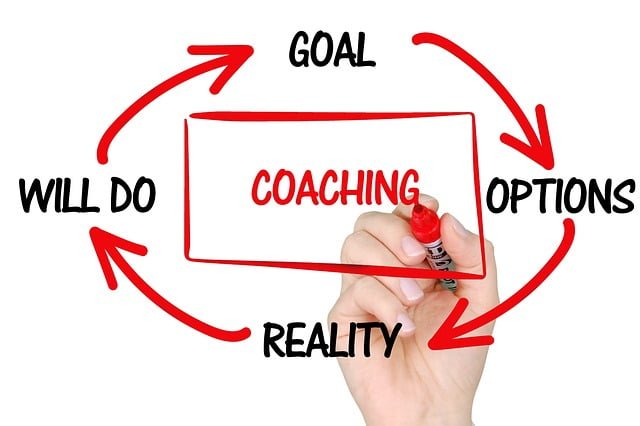
Need help achieving your goals? Meet & defeat the challenges in your Life!
In the fast-paced and ever-evolving world of today, many individuals encounter numerous challenges and seek guidance to navigate them effectively and achieve their desired outcomes. A life coach can come in handy in such situations. This is a trained professional who works with individuals to gain clarity, identify their goals and aspirations, and develop actionable steps towards achieving them. Selecting the right life coach is a critical decision that can impact your personal and professional growth. Hence, it is essential to consider various factors when searching for a great life coach, such as their qualifications, experience, approach, availability, and compatibility with your personality and goals. It is also essential to ask pertinent questions during the selection process and understand the typical costs and potential outcomes of working with a life coach. Additionally, you may wonder where to find reliable life coaches, whether online or offline, and whether a therapist would be a better fit for you. These topics will be explored in this article, providing insights and suggestions that can enrich your experience in finding the right life coach for you.
When it comes to finding the right life coach for you, there are several important factors to consider:
- When seeking out a life coach, it is essential to thoroughly research their qualifications and credentials to ensure that they possess the necessary experience and expertise to guide you towards achieving your goals. Delve deep into their background, and look for certifications from well-known and reputable coaching organizations such as the International Coach Federation (ICF) or the Coaches Training Institute (CTI).
- When choosing a life coach, it’s crucial to take into account their level of experience and whether they have the necessary specialization that aligns with your particular requirements. Life coaching is a vast field, and coaches can specialize in various domains such as career development, personal growth, relationships, and health and wellness. Thus, you should carefully evaluate the coach’s experience in your specific area of interest and determine if they have the required expertise to provide you with the coaching you are in need of.
- When it comes to coaching, every coach has their own distinctive style and approach. To achieve the most effective results, you need to find a coach that supports and encourages you with a style that complements your personality. Some coaches are direct and push you to take immediate action, while others focus on promoting introspection and self-reflection to help you develop personally and professionally. This is why finding the right coach can sometimes be a challenge. You’ll need to conduct thorough research and be discerning in selecting the right coach.
- When it comes to working with a life coach, having a solid connection and trust are fundamental elements for a fruitful relationship. To achieve this, it is crucial to assess how well you mesh with your potential coach during preliminary sessions or discovery calls. Take into account how effectively you bond with your coach, and if they comprehend and listen to you well enough. By doing so, you can establish a strong rapport with your coach, which is a crucial element of a successful coaching relationship.
Questions to Ask a Potential Life Coach:
- What is your coaching philosophy and approach?
- What specialized training or certifications do you have?
- Can you provide examples of clients you have helped and their success stories?
- What is the structure and frequency of coaching sessions?
- How do you support clients in setting and achieving goals?
- What is your availability for ongoing support between sessions?
- How do you handle challenges or obstacles that may arise during the coaching process?
- What is your policy on confidentiality and ethical guidelines?
- Do you offer any assessment tools or resources to enhance the coaching process?
- What are your fees and payment policies?
Estimated Costs of Life Coaching:
Life coaching fees can vary depending on the coach’s experience, specialization, and geographic location. On average, the cost of life coaching sessions can range from $75 to $300 per hour. Some coaches may offer package deals or discounted rates for multiple sessions. It’s important to discuss the financial aspect upfront and ensure it aligns with your budget and expectations.
Goals to Expect from a Life Coach:
Working with a life coach can help you clarify your goals, create a roadmap for success, and provide the accountability and support needed to achieve them. Common goals people work on with life coaches include:
- Clarifying personal values and life purpose.
- Setting and achieving career goals.
- Improving relationships and communication skills.
- Enhancing work-life balance and overall well-being.
- Developing self-confidence and overcoming limiting beliefs.
- Building resilience and managing stress effectively.
- Creating a vision for the future and taking meaningful action steps.
Where to Find a Life Coach:
- Personal Recommendations: Seek recommendations from friends, family, or colleagues who have had positive experiences with a life coach.
- Professional Networks: Explore professional organizations, such as the International Coach Federation (ICF), to find certified and reputable life coaches.
- Online Directories: Utilize online directories like the ICF website, Life Coach Hub, or Thumbtack to search for life coaches based on location, specialization, and credentials.
- Social Media and Online Communities: Engage in social media platforms and online communities related to personal development, coaching, or self-improvement. Many coaches promote their services and share valuable content in these spaces.
- Referral from Therapists or Counselors: If you are already working with a therapist or counselor, they may be able to provide recommendations for life coaches who can complement your therapy.
Is a Therapist a Better Solution for You?
Although life coaching is a great tool for self-improvement and accomplishing targets, it is crucial to assess whether therapy or counseling is a more suitable option based on your individual requirements. Therapists are qualified mental health experts with the expertise to assist in dealing with deep-seated emotional or psychological concerns that may hinder overall well-being and progress. It’s essential to recognize the critical distinctions between coaching and therapy and consult with a professional to determine the most fitting support for your particular needs.
If you’re currently facing significant mental health problems, coping with ongoing trauma, or dealing with unresolved emotional difficulties, it might be helpful to consider therapy as a crucial starting point in your journey to wellness. Choosing to work with a therapist can offer you a safe and comfortable space to delve into the roots of your issues and begin healing from the inside out. In addition, therapists can educate you about healthy coping mechanisms and guide you through challenging moments so that you feel more secure in yourself and your own abilities to overcome these difficulties you face.
If you are in search of assistance with achieving your goals, getting motivated, being held accountable, and enhancing your personal growth, then a life coach can be a fantastic partner to guide you along your path and ensure you stay focused. A life coach acts as a sounding board for your ideas, offering feedback and support, and helping you to identify and overcome any obstacles holding you back.
Conclusion:
When it comes to finding the right life coach, it’s essential to take the time to make a thoughtful and personal decision. Choosing a coach who can positively impact your individual growth and overall happiness is a significant choice. To enhance your chances of success, consider various aspects, including their qualifications, experience, coaching style, and compatibility with your personality. A comprehensive and in-depth approach is required to find a coach who shares your goals and values.
During the process of selecting a coach, it’s crucial to ask thoughtful and probing questions that can reveal their strategies towards coaching. This enables you to ascertain if the coach is an adequate match for you. Further, it’s crucial to have an understanding of the expected costs, setting transparent goals, and know the sources to find reliable coaches that can streamline the selection process. Obtaining this level of depth can be immensely beneficial during the coach selection process. So, take your time and don’t rush your decision.
Although a life coach can have a significant impact on your life, it is crucial to recognize that it may not be the ideal approach for everyone. Taking the time to evaluate your individual situation can help determine whether therapy might be a more fitting option. It’s important to choose the right type of support system that will help you achieve your goals of personal growth, empowerment, and reaching your full potential, whether it be through the guidance of a coach or the expertise of a therapist. By making the right choice, you can ensure that you are receiving the best care and guidance necessary for yourself.









